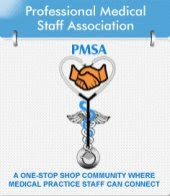Everyone needs a few ground rules in life and in business. It gives us the boundaries we need to become successful. Think back on your childhood or your children’s, one of the ways they learn is to test the boundaries. How far can I go before Mom says no. If I push can I get my way? Think about it as adults don’t we do the same thing?
When you barter for something or try to negotiate for a lower price, say a car or piece of medical equipment aren’t you pushing to see how far you can go before no comes up? You push the boundaries as far as they will go to your benefit. Employees do this as well.
Think about your employee who comes in as close as possible to the time, or how about the employee who pushes the break-time or lunch rules. As managers we are told all the time to give positive reinforcement, but employees need boundaries and if they cross over them they need to know what to expect.
At the minimum your office should have an employee manual. All staff should be responsible for reading the manual and signing off that they have received a copy of the manual. You should also consider a policy manual or office procedure manual. This can include all of the other rules and what is expected of the staff. This should be kept where the staff can have access. If you have monthly meetings or regular meetings keep a copy of the agenda and have staff sign-in. Then consider keeping this record where staff can review occasionally.
I suggest having a set of disciplinary steps that staff are aware of and can review. The example could be followed with the guidelines that certain circumstances could call have more severe punishment. In other words if a patient or staff had been in danger or HIPAA incident called for immediate dismissal this could be done without following all of the steps. The company, employees, and patient’s safety should be put first.
An example would be:
First infraction: The first step is a verbal warning. A copy of this is signed by employee and kept in their file clearly stating this is a verbal warning.
Second Infraction: This would be a written warning. It would be signed by employee and kept in their file.
Third Infraction: Time off with out pay. Many offices can have up to a week off without pay, but usually only have three days off.
Fourth Infraction: This would be dismissal from employment.
In all cases state and local regulations should be followed on handling disciplinary actions. The point is that the staff should know what is expected and what will happen if they break the rules. People need positive and not so positive feedback to help them set up the boundaries of what is expected and what is allowed. It is your job to give them those boundaries.
Monday, April 13, 2009
Subscribe to:
Post Comments (Atom)

No comments:
Post a Comment